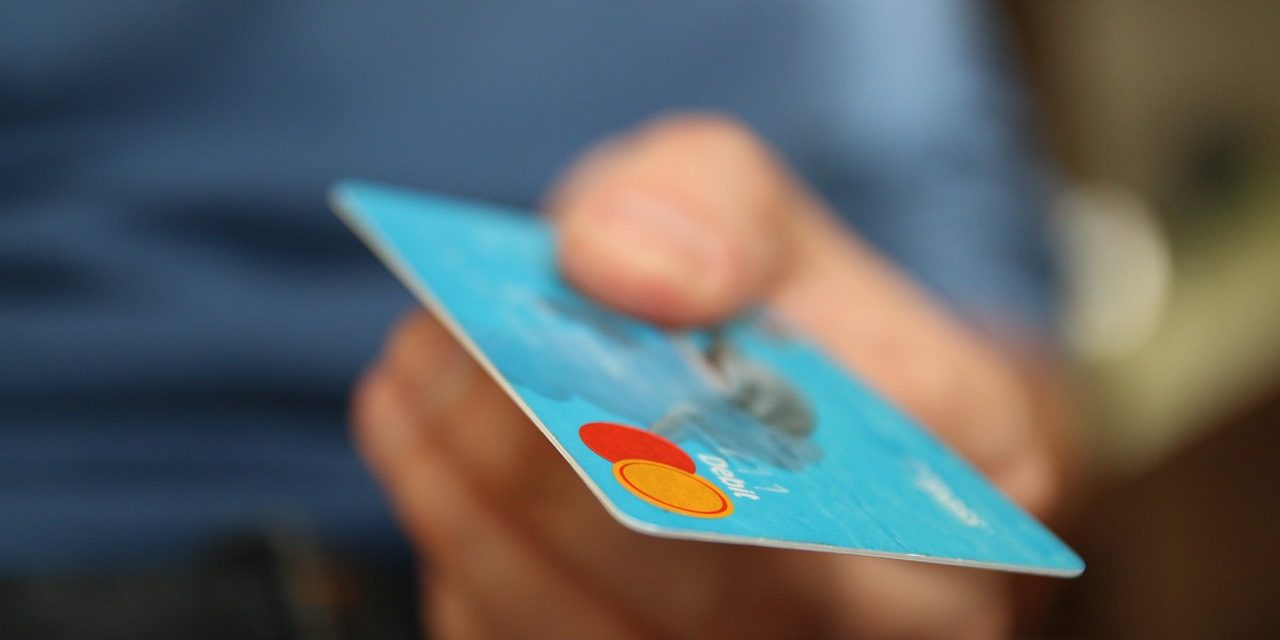So, you’re planning a trip to Botswana, huh? Well, before you pack your bags and hop on that plane, there’s something important you might want to know – are credit cards widely accepted in Botswana? It’s a question that often crosses the minds of travelers, especially those who prefer the convenience and security of plastic over carrying loads of cash. In this article, we’ll take a closer look at whether Botswana is a credit card-friendly country or if you should be prepared to rely primarily on cold, hard cash during your stay.
Overview of Credit Card Usage in Botswana
Botswana, located in southern Africa, has experienced significant economic growth in recent years, leading to an increase in consumer spending and the adoption of modern financial practices. One such practice is the usage of credit cards, which have become increasingly prevalent in the country. In this article, we will explore the prevalence of credit card usage in Botswana, the advantages and disadvantages of credit cards, factors influencing credit card acceptance, and various aspects of credit card usage in both urban and rural areas.
The Prevalence of Credit Card Usage in Botswana
Credit card usage has been steadily growing in Botswana, particularly in urban areas. The convenience and flexibility offered by credit cards have attracted many consumers, making them an integral part of the country’s financial landscape. While credit cards are not as ubiquitous as cash or debit cards, they are gaining popularity among the population.

Advantages and Disadvantages of Credit Cards
Credit cards offer several advantages to users. Firstly, they provide a convenient and secure method of payment, eliminating the need for carrying large amounts of cash. Additionally, credit cards offer protection against fraud, and some even provide insurance coverage for travel and purchases. Furthermore, credit cards provide a source of instant credit, allowing users to make purchases even when they do not have immediate funds available.
However, credit cards also come with their disadvantages. The ease of use and instant credit can lead to overspending and accumulating debt if not managed responsibly. High-interest rates and fees associated with credit cards can also be a burden for users who carry balances. Moreover, credit card theft and fraud remain a concern, despite the security measures in place.
Factors Influencing Credit Card Acceptance in Botswana
Several factors influence the acceptance of credit cards in Botswana. Firstly, the infrastructure required to process credit card transactions is necessary and must be accessible for businesses to accept credit cards. This infrastructure includes point-of-sale (POS) devices and reliable internet connectivity, representing a challenge in some areas of the country, especially in rural regions.
Additionally, the cost of implementing credit card acceptance systems is a significant consideration for businesses. The initial investment and ongoing fees associated with credit card processing can be expensive for smaller enterprises. As a result, some businesses may choose not to accept credit cards due to the perceived high costs involved.
Furthermore, financial literacy plays a role in credit card acceptance. Educating consumers about the benefits and responsible use of credit cards can increase acceptance and usage. Additionally, perception regarding credit card security and trustworthiness can influence both businesses and consumers in their decision to adopt credit card systems.

Acceptance of Credit Cards in Urban Areas
Credit card acceptance is more prevalent in major cities in Botswana. Most businesses in urban areas, such as Gaborone and Francistown, accept credit cards as a form of payment. This includes various industries like retail, restaurants, and accommodations. Visitors to these cities will find it relatively easy to use their credit cards for purchases.
Popular merchants, such as supermarkets, shopping malls, and high-end boutiques, are generally equipped with modern POS devices that accept credit cards. These establishments cater to both locals and tourists, making credit card acceptance a standard practice. The convenience of credit cards in urban areas allows residents and visitors to enjoy a seamless shopping experience.
However, there might still be limitations and challenges in credit card usage in urban areas. Some smaller, local businesses may not accept credit cards due to the costs involved or lack of infrastructure. Additionally, occasional network connectivity issues may hinder credit card transactions, requiring alternative methods of payment.
Credit Card Acceptance in Rural Areas
While credit card acceptance is more widespread in urban areas, the accessibility of credit card acceptance in rural areas is limited. The infrastructure required for credit card processing, such as POS devices and reliable internet connectivity, may not be as readily available in rural regions. As a result, many businesses in rural areas may not have the capability to accept credit cards as payment.
In the absence of credit card acceptance, rural areas rely heavily on alternative payment methods. Cash transactions are still the dominant form of payment in these areas. Additionally, mobile money services, such as M-Pesa, have gained popularity and serve as a convenient alternative payment method in rural areas where credit card acceptance is limited.
Efforts are being made to promote credit card usage in rural areas, recognizing the benefits it can bring to both businesses and consumers. Initiatives by financial institutions and the government aim to improve infrastructure and provide support for businesses to adopt credit card systems. These efforts seek to bridge the gap in credit card acceptance between urban and rural areas.

Tourism and Credit Card Usage
Tourism is an essential sector in Botswana, attracting visitors from around the world to explore its natural wonders and wildlife. Credit card acceptance in tourist hotspots, such as the Okavango Delta and Chobe National Park, is generally widespread. Hotels, lodges, and tour operators catering to tourists often accept credit cards to accommodate their international visitors.
For travelers, credit cards offer the convenience of not having to carry large amounts of cash and provide a universally accepted payment method. Credit cards also offer additional benefits, such as travel insurance and rewards programs. However, travelers should be mindful of potential drawbacks, such as foreign transaction fees and currency conversion rates, which can affect the overall cost of their purchases.
Considering safety precautions for credit card usage in Botswana is important for both locals and tourists. Users should be vigilant in safeguarding their credit card information, including using secure websites and not sharing card details with unauthorized individuals. It is advisable to notify the credit card issuer of travel plans to prevent any potential disruptions or suspicions of fraudulent activity.
Credit Card Acceptance at Local Banks
Local banks in Botswana offer credit cards to their customers, providing another avenue for credit card adoption. These banks, such as First National Bank Botswana and Standard Chartered Bank Botswana, offer a range of credit card options to suit different needs and preferences.
The application process for credit cards from local banks typically involves completing an application form and submitting the necessary documents, such as proof of income and identification. The creditworthiness and financial history of the applicant are factors considered during the approval process. Once approved, customers can enjoy the various features and benefits of the credit card offered by the issuing bank.
Comparing credit card features and benefits is essential for individuals considering obtaining a credit card from a local bank. Factors to consider may include interest rates, annual fees, rewards programs, and customer service. Each bank has its own terms and conditions, so it is advisable to thoroughly review these details before deciding on a credit card.
Foreign Credit Card Acceptance in Botswana
Botswana generally accepts international credit cards, making it convenient for international visitors to use their cards while in the country. Major credit card networks, such as Visa, Mastercard, and American Express, are widely accepted at most businesses that have credit card processing capabilities.
However, it is important to note that currency conversion fees and additional charges may apply when using foreign credit cards in Botswana. These fees can vary depending on the issuing bank and should be considered by travelers when using their cards. Additionally, it is advisable to inform the credit card issuer of travel plans to prevent any inconvenience or potential issues with card usage abroad.
Promoting Credit Card Acceptance in Botswana
Various initiatives have been undertaken by the government and financial institutions to promote credit card acceptance in Botswana. These initiatives aim to improve infrastructure, enhance financial literacy, and address concerns related to credit card adoption.
Improving infrastructure, such as expanding the availability of POS devices and ensuring reliable internet connectivity, is crucial in facilitating credit card acceptance. Financial institutions are collaborating with businesses to provide the necessary equipment and support for credit card systems.
Educating consumers about the benefits and responsible use of credit cards is another priority in promoting credit card acceptance. Financial literacy programs, workshops, and awareness campaigns are conducted to increase understanding and encourage the adoption of credit cards.
Addressing concerns related to credit card adoption is essential for building trust and confidence in credit card transactions. This includes measures to enhance security, such as implementing advanced security features and fraud detection systems. Public dialogue and engagement are also important in addressing any misconceptions or reservations surrounding credit cards.
The Future of Credit Card Acceptance in Botswana
The future of credit card acceptance in Botswana looks promising, with ongoing technological advancements and changing consumer preferences. Emerging trends, such as contactless payments and mobile banking, are expected to shape the future of credit cards in the country. These innovations offer increased convenience and security, further driving the adoption of credit card usage.
The potential for growth in credit card usage in Botswana is significant, driven by a growing middle class, increasing urbanization, and advancements in the financial sector. As more businesses adopt credit card systems and infrastructure improves, the accessibility and acceptance of credit cards are likely to expand. The adoption of credit cards may also lead to the development of a cashless society, further propelling the growth of credit card usage.
Various factors will shape the future of credit cards in Botswana, including regulatory policies, economic developments, and technological advancements. It is crucial for stakeholders, including the government, financial institutions, and businesses, to collaborate and adapt to these changes to ensure the continued growth and evolution of credit card acceptance in the country.
Challenges and Solutions for Credit Card Acceptance
While credit card acceptance in Botswana has made significant progress, there are still challenges that need to be addressed. Some of these challenges include security concerns, connectivity issues in remote areas, and enhancing trust and confidence in credit card transactions.
Addressing security concerns is crucial to ensure the safety and protection of credit card users. Employing advanced security measures, such as chip and PIN technology and two-factor authentication, can help mitigate the risk of fraud and unauthorized access. Regular security audits and proactive monitoring of transactions are also essential in maintaining the integrity of credit card systems.
Connectivity issues in remote areas pose a significant obstacle to credit card acceptance. In areas with limited internet access, businesses may struggle to process credit card transactions. Expanding internet coverage and exploring alternative payment solutions, such as offline payment systems, can help overcome this challenge and enable credit card acceptance in remote areas.
Enhancing trust and confidence in credit card transactions is essential for widespread acceptance. This includes educating consumers about their rights and responsibilities, ensuring transparent and fair practices, and addressing any concerns or disputes promptly. Building a strong regulatory framework and enforcing compliance can help establish a trusted environment for credit card transactions.
Comparative Analysis of Credit Card Acceptance
Comparing credit card acceptance in Botswana with neighboring countries provides valuable insights into the landscape of financial transactions in the region. Countries such as South Africa and Namibia have more advanced credit card acceptance infrastructure, with a higher number of businesses accepting credit cards. This serves as a benchmark for Botswana to strive for further improvement.
Globally, credit card acceptance varies across different countries. Developed countries like the United States, Canada, and the United Kingdom have highly developed credit card acceptance systems, with the majority of businesses accepting credit cards. These countries have advanced infrastructure and a strong culture of credit card usage.
Drawing lessons from successful credit card adoption in other nations can offer valuable insights for Botswana. Studying the strategies and initiatives implemented in countries with high credit card acceptance can help identify best practices that can be adapted to the Botswana context. Collaboration and knowledge sharing among countries can contribute to overall growth and improvement in credit card acceptance worldwide.
In conclusion, credit card usage in Botswana has been on the rise, particularly in urban areas. While credit cards are not as widely accepted as cash or debit cards, they are becoming increasingly prevalent. The advantages of credit cards, such as convenience and security, have contributed to their growing popularity. However, challenges such as infrastructure limitations and security concerns need to be addressed to further promote credit card acceptance. With ongoing initiatives to improve infrastructure, enhance financial literacy, and address concerns, the future of credit card acceptance in Botswana looks promising. It is essential for stakeholders to collaborate and adapt to emerging trends and technology to ensure the continued growth and evolution of credit card usage in the country.












